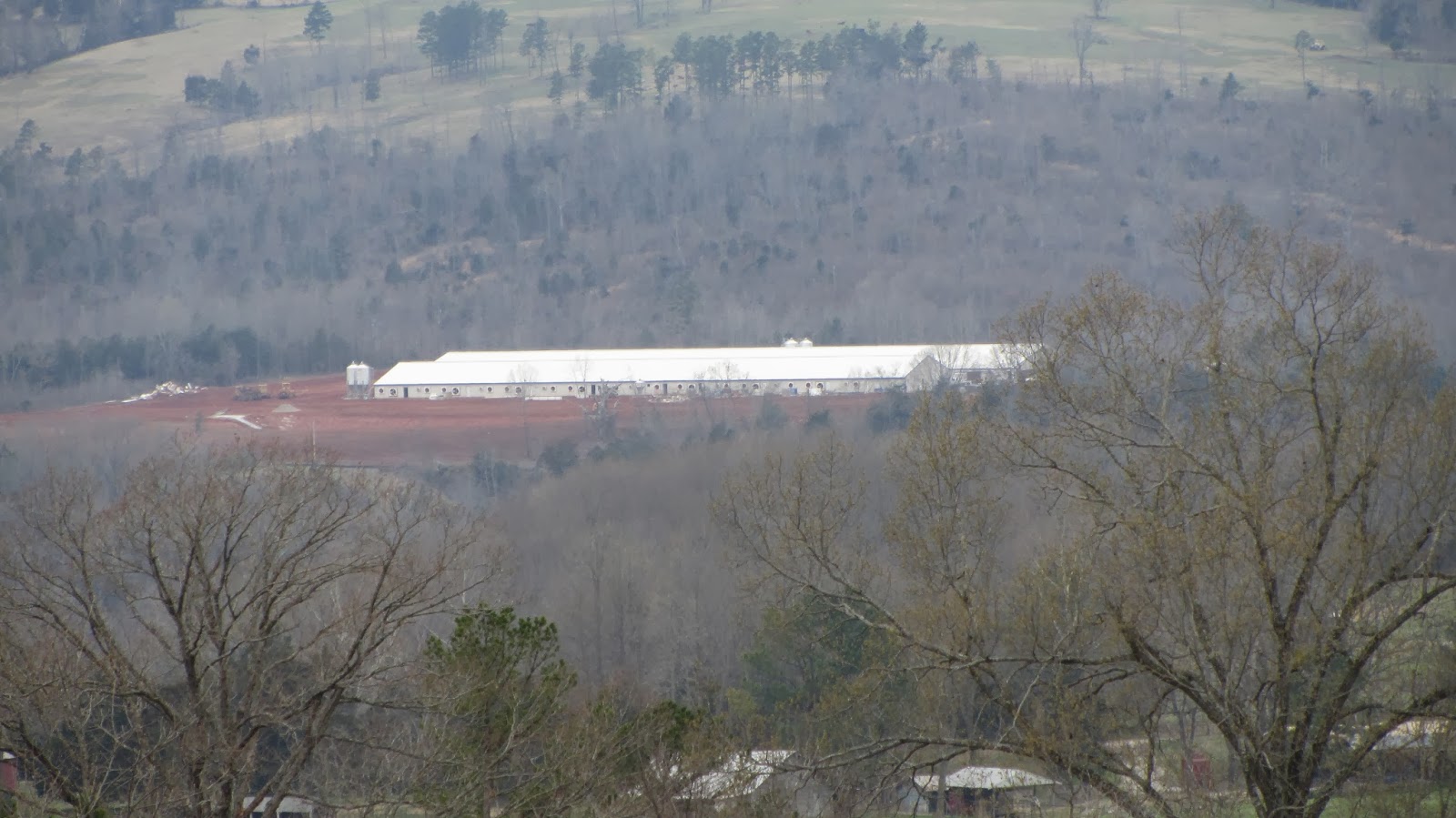 |
| C & H Hog Farm, Mt. Judea, Arkansas, in Buffalo National River watershed. April, 2013. Photos by Lisa R. Pruitt |
 I've been writing since last March about a huge industrial hog farm that Arkansas state agencies approved in August, 2012 under a virtual shroud of secrecy given the lack of notice to area residents. The farm, called C & H, is in rural Newton County, Arkansas, just a few miles from the Buffalo National River and along one its tributaries, Big Creek. (Read more here, here, here, here, here and here). Some state and regional media have followed the story, too, which has drawn protests from environmental groups.
I've been writing since last March about a huge industrial hog farm that Arkansas state agencies approved in August, 2012 under a virtual shroud of secrecy given the lack of notice to area residents. The farm, called C & H, is in rural Newton County, Arkansas, just a few miles from the Buffalo National River and along one its tributaries, Big Creek. (Read more here, here, here, here, here and here). Some state and regional media have followed the story, too, which has drawn protests from environmental groups. But imagine my surprise--and delight--when the New York Times published on its website this evening "2,500 Pigs Join Debate Over Farms v. Scenery." I was even more delighted to see that the story focused on the very same industrial hog farm that I and lots of other folks in northwest Arkansas have been complaining about in the 11 months or so since the enterprise became truly public.
John Eligon's story for the Times does not have a lot of new information (above and beyond my blog posts, that is) about what happened and is, indeed, still happening. It does, however, feature some interesting quotes from locals--some who support the hog farm, others who do not. Here's a sampling:
- “I was just sick over it — I just couldn’t believe it,” said Jewell Fowler, 87, who found out about the hog farm after it had been approved, through a notice in a local newspaper. Born in Mount Judea, Ms. Fowler has lived for the past four decades in a wooden cabin on the banks of the Big Creek, one of the main tributaries to the Buffalo River: a quiet oasis where the trees emit a sugary scent and water laps over rocks in a soothing whir. “I’m just afraid of the stink, maybe contamination, make people sick,” Ms. Fowler said.
- Glenn Ricketts, 55 and a relative by marriage to some of the hog farm's owners, asked Eligon, "You smell it." He then continued, “Reason why it don’t bother us, we’re just hillbillies. When you’re raised up around a hog, it don’t bother you.”
- Charles Campbell, 77, who has an agreement with the hog farm to spray its manure on his land says, “I don’t think that it would pollute the river at all. I’ve lived in this count[ ]y for, well, all my life, and cattle and hogs has been raised up and down the creek here, and to me it ain’t bothered nothing so far."
As for BigAg, Mike Martin, a spokesman for Cargill, Inc., the entity that will benefit most from the farm, said:
We believe that modern farming and environmental conservation and protecting the environment can coexist. A lot of the fear and concern is based on a ‘what if’ scenario that may never take place.
 |
| C & H Hog Farm, as seen from Mt. Judea School. |
Many see it as an economic bright spot in Newton County, which has high poverty.High poverty, indeed. It is a persistent poverty county with no industry and mostly subsistence farms. It is classified by USDA ERS as federal-state government dependent.
 |
| Neighbors of C & H Hog Farm. Newton County is a persistent poverty county. |


No comments:
Post a Comment